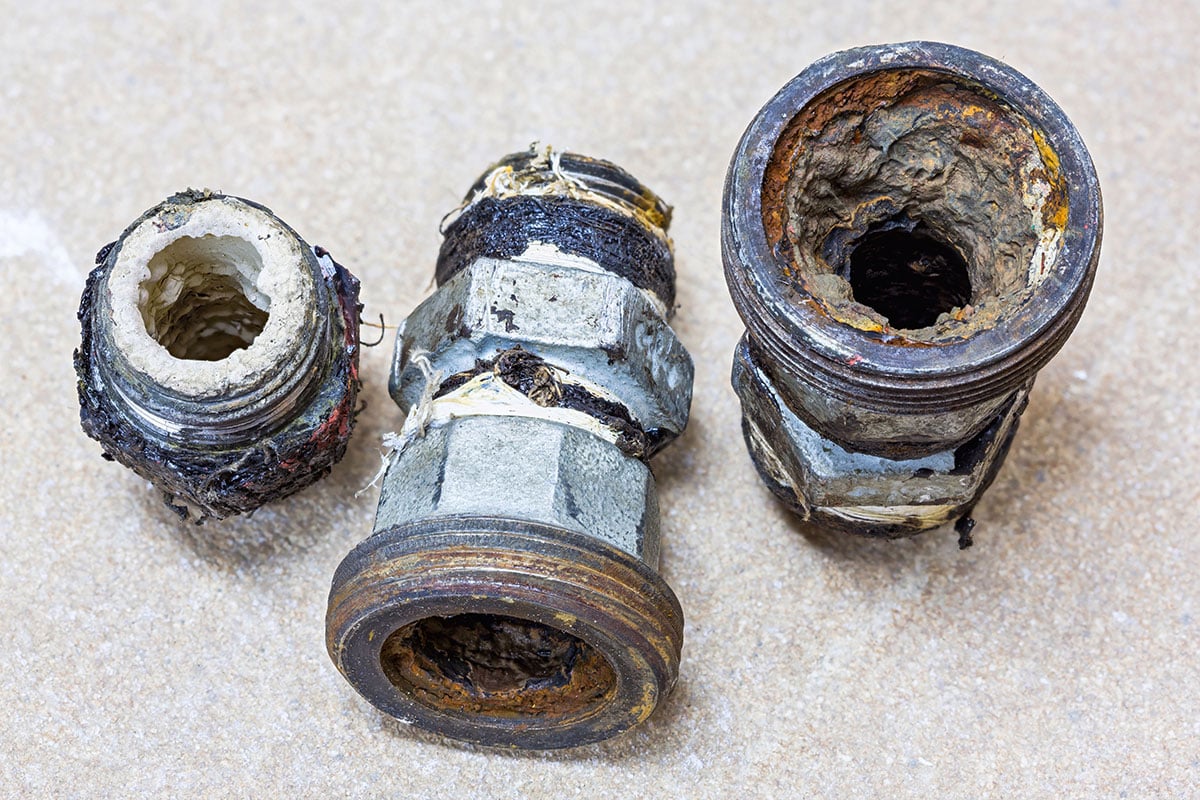Let's start by understanding what scale is. This term is used to describe the sediment that forms when hard water is heated. Hard water is rich in calcium and magnesium ions. When such water is heated, these minerals are precipitated and form a precipitate known as scale.
This deposit can form in various parts of the heating system, but is most commonly found inside the boiler. Limescale is hard and difficult to remove. And most importantly, it is a poor conductor of heat, which means it impedes the flow of thermal energy from the boiler to the water.
How does limescale affect heating bills?
It is assumed that boiler scale is even 20 times worse heat conductor than steel. This means that each layer of scale in heating boilers significantly reduces their efficiency.
It has been studied that a layer of sediment just 2 millimeters thick can reduce the efficiency of the entire heating system by up to 20%. Translated into costs, this can mean a significant increase in heating bills. In the case of water hardness, this problem cannot be overestimated.
The solution to the problem: water softeners
There is a simple solution to this problem: softening the water. Water softeners are devices that reduce the content of calcium and magnesium ions in water, which makes it "soft". Soft water does not scale, which means it not only increases the efficiency of your heating system, but also significantly lowers your heating bills.
Using a water softener saves up to 30% of the amount spent on heating the house. These are big savings that will quickly compensate for the costs of installing and maintaining the water softener.
Is it worth investing in a water softener?
Of course, every investment carries certain costs. Water softeners are no exception. They must be installed, maintained and regularly serviced to function effectively. However, when the potential savings on heating bills are taken into account, this investment becomes more attractive.
For example, if the annual heating bill is PLN 5,000, and the installation of a water softener will save 30% of this amount, this means a saving of PLN 1,500 per year. Within a few years, these savings can easily cover the cost of purchasing, installing and servicing a water softener.
Scale and increased energy costs
Scale is a problem that can cause significant energy losses and increase heating bills. However, there is a solution to it - water softening. Water softeners can significantly reduce the formation of scale, which translates into higher efficiency of the heating system and lower heating bills. Considering the potential savings, investing in a water softener seems like a good financial decision.



